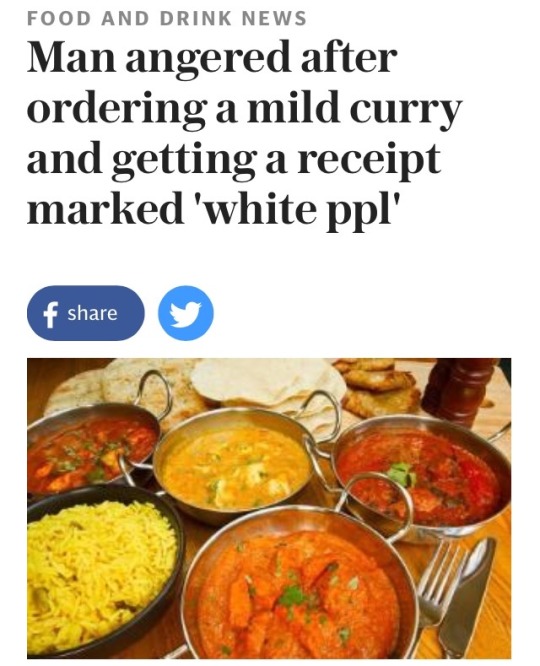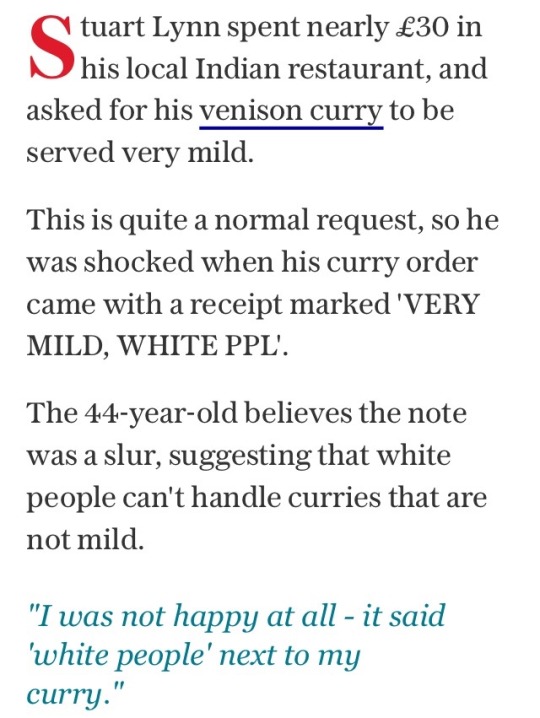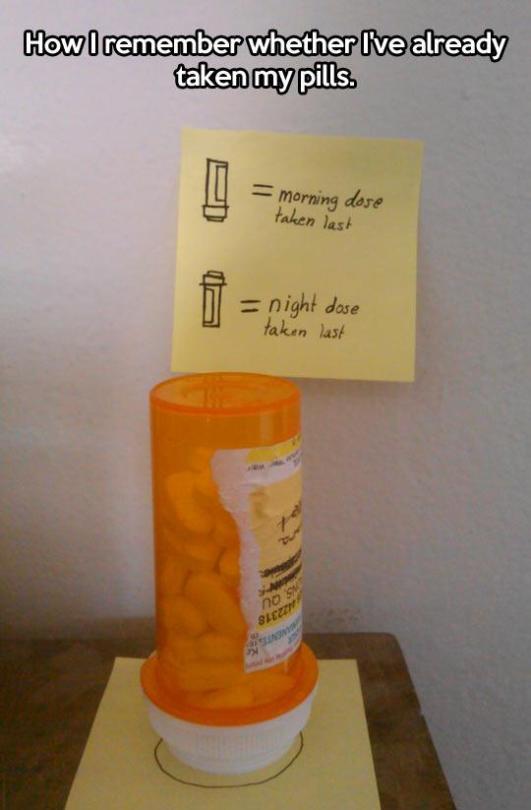Photo




Souvenirs Breton Island Nuances Nuances Océaniques
by Thibault Poriel
3K notes
·
View notes
Text
The Two Most Important Things I Learned in Parasitology:
1) Don’t eat raw meat.
2) Don’t eat poops.
1K notes
·
View notes
Text
WHEN YOUR MEDICAL STUDENT IS ABOUT TO PLACE THE SPECULUM HANDLE IN THE VAGINA

119 notes
·
View notes
Text
Waking up early every morning for the next four weeks because I don’t trust my sneaky, lying disrespectful intern who doesn’t do a damn thing I ask.
Rage is better than caffeine. Combined, who knows?
137 notes
·
View notes
Quote
We pity in others only the those evils which we ourselves have experienced.
Jean-Jacques Rosseau (via fyp-philosophy)
821 notes
·
View notes
Text
An All-Inclusive Guide to Making Your First Year in Practice Not Suck As Much As Wayfaring’s
Hi there, just curious if you’d share what things you were looking for in your first job vs what things you value now, now that you’ve been working out there on your own. Anything that must be in the contract that wasn’t there before (or vice versa)? Tips for future graduating residents?
Yaaaaasssss so many advices. So many things. This ask has been in my inbox for months because I have too many things to say about it and I can’t seem to organize it properly.
Let’s break it down into 3 sections: 1) What I thought I wanted 2) What I needed and didn’t know to ask/look for 3) What I want now. Here goes.

What I thought I wanted:
big dolla$$$
super sweet signing bonus
moving allowance
loan repayment assistance
regular 40 hour work schedule
nice patients
independence / autonomy in decisionmaking
ability to practice the way I was trained - with up to date guidelines and procedures and equipment

What I wanted and didn’t know to ask for:
Supportive colleagues - In your first year of practice out of residency you lose every ounce of confidence that you gained as a senior resident. You question minor decisions and are constantly afraid of killing people or being sued. It is extra hard to practice in a new town when your partners in practice are not supportive. Sometimes you need someone to lay a fresh set of eyes on a wonky EKG or a weird rash, you know? I didn’t have that option. It made me study harder and somewhat be more cautious and definitely more creative in my practice. But having a colleague to commiserate with at the end of the day or to consult on difficult cases would have been really nice. You don’t have to be BFFs with your colleagues, but they have to be people you can agree/get along with and trust to take care of your patients in your absence.
Friends - This sounds obvious, but I moved to a new town that literally has no people anywhere close to my age. Even having one person I knew and could confide in would have been wonderful. One person to go to a movie with or watch a football game with would have been a sanity saver for me. Find a place where you can find other people like you.
A reasonable amount of time off - I got less time off in my first job than I did as a resident. That was unacceptable to me. This would be fine if my practice didn’t act like they were going to go bankrupt if I took an unpaid day or even a half day to go to the doctor, but they did. You need a place where you can take one week off every 3-4 months if possible, even if all that time isn’t paid. Medicine is such a stressful job. Make sure they’re giving you rest time.
A non-toxic work environment - I knew going into my job that I was replacing a workaholic and that I was joining a workaholic. What I didn’t realize was that I was also expected to be a workaholic and anything less than killing myself was seen as laziness. Pay attention to the culture at your new job. Ask the docs what they do for fun or to relax and more importantly when the last time was they did that thing. If they don’t have any answers, they’re too busy.
Diversity. This may just be me, but I went into family medicine because I get bored easily. I need variety of patient types and disease types and socioeconomic groups and everything else. I realized quickly in my practice that most of my patients were privately insured elderly white people. As in, the most boring demographic for Wayfaring.
A Balanced schedule. I figured that when I joined a practice that had been established for 30 years that the workflow kinks would have been worked out and it would run like a well oiled machine. In reality I would have 8 physicals a day and 5 of my most complicated patients in hospital follow ups back to back, all scheduled for just 15 minutes. There has to be balance in the schedule. You have to be able to take a little extra time here and make it up elsewhere.

What I want now:
fair dolla$$$. In actuality, what’s fair is actually considerably more than what I was making in my first job. I was grossly underpaid, particularly considering this being a rural area where nobody wants to work (typically those jobs are paid much higher). It’s not about the bottom dollar value for me. It’s about compensating me in a way that is comparable to my peers.
Colleagues who can be both friends and mentors. See above.
Good benefits. Two years of no dental or vision sucks when your most expensive problems are dental and vision related. Life insurance and retirement plans aren’t something most 30 year olds think of, but they’re really important, and I didn’t have those to start with.
A flexible schedule. The whole world doesn’t need to fall apart if I need to switch my regular day off or if I need a half day to go to the doctor.
Administrative time. Preferably a full week day, but a half day is great too. I’m happy working 4 10 or 12 hour days a week to have one week day off to catch up on work I’m behind on or get my hair cut and get my taxes done and see my psychiatrist, you know?
Knowledgeable and helpful staff. I need staff who don’t perpetuate old wives’ tales and notions like “you need a zpack for that cold”. I need to work with people who will ask if they don’t understand something rather than just make something up and who can help me educate my patients. I need folks who are prompt and who can anticipate some needs.
To not be responsible for other peoples’ paychecks. In private practice, if I take time off or scale back, the practice loses money and thus our staff lose hours or money too. The staff in my first job were horribly underpaid and I don’t like the idea of the entire burden of the practice’s finances hanging on my shoulders. Sign me up for that hospital-owned practice, please.
To not have to turn patients away based on payer source. This is a national problem and is definitely not limited to my first job. But my first job wouldn’t let me take Medicaid patients at all. It made it completely impossible for me to build any sort of pediatric or OB practice in our town. I don’t like the idea of turning away a patient because their type of insurance doesn’t pay as well. I want to just treat patients and not have to worry about their payments. Hello, single payer healthcare system. Get on it! Obviously I will still have to worry about whether my patient can afford their meds or whether their insurance will cover their meds, but I won’t have to pick and choose what patients I accept based on their payer source.
To deliver quality, up to date care. To work with people who will back up my evidence-based decisions and not practice based on feelings and patient satisfaction. To work with people who will encourage me to learn more and do new things.

There you have it folks. A lil summary of what I want, what you might want, and what I’ve learned in these first (almost) 2 years of practice. Here’s to better future jobs for us all!
1K notes
·
View notes
Text
When you don’t want to go to a lecture but there will be free food.

73 notes
·
View notes
Text
Looking at something truly gross
People, usually: Eww, what the fuck is that *looks away*
Med students: Eww, what fuck is that *looks closer*
8K notes
·
View notes
Text
11 Bad Habits You Need to Give Up If You Want to Be Happy
Stop waiting for happiness and success .

When we aim to become happy and have a successful outlook, we often focus on getting to the next station in life. Happiness is seemingly always “someday” in the near-distant future — once we finally land that promotion or find the right partner.
I’m a huge proponent of setting new aspirational goals, but I also know the severe importance of having a positive outlook on life. Your inner-happiness needs to be harnessed in the present, so you can use the power of positive thinking to reach those new heights eventually.
When you solely focus on the future to be happy, you end up ignoring the toxic habits and attitudes that could be dragging it down in the present. It won’t be a cakewalk, but it is possible to harness a successful and upbeat outlook now with some shifts to your mindsets and habits.
Without further ado, here are those things you need to give up to be happy and successful:
Continue Reading the Article
5K notes
·
View notes
Text
Two Female Cosplayers Got Married & Their Wedding Looked Like A Beautiful Fairytale Scene

Two Danish female cosplayers Carina and Soerine, who love to take on the roles of Supergirl and Powergirl have finally wed, and their wedding and honeymoon celebration seemed like a page plucked from a fairy tale.
Keep reading
10K notes
·
View notes
Text
Mental Illness Recovery Series Book Campaign
Story # 1 Depression / anxiety & insomnia
Story # 2 - Bipolar type 1 / Schizoaffective / Antisocial Personality Disorder & Polysubstance Abuse Disorder
Story # 3 Depression
Story # 4 Depression & Anxiety
Story # 5 Depression & Social Anxiety
Story # 6 Depression
Story # 7 Major Depressive Disorder / Post-traumatic Stress Disorder / Generalized Anxiety Disorder & Dermatillomania
Story # 8 Depression & Dissociative Disorder
Story # 9 Dissociative Identity Disorder / Depression, Anxiety / Post-traumatic Stress Disorder & Phobias
Story # 10 Depression
Story # 11 Depression / Social Anxiety Disorder / Generalized Anxiety Disorder / Panic Disorder & Agoraphobia
Story # 12 General Anxiety Disorder & Panic Disorder
Story # 13 - Depression & Anxiety
Story # 14 Depression
Story # 15 Depression & Borderline Personality Disorder
Story # 16 ADD / Depression / Anxiety / Insomnia & Identity Issue
Story # 17 Depression & Social Anxiety
Story # 18 GAD / Social Anxiety & Clinical Depression
Story # 19 BPD / ADD / PTSD & EDNOS
Story # 20 Anxiety, PTSD & Depression
Story # 21 Bipolar Type II
Story # 22 PTSD / Depression
Story # 23 Bulimia / EDNOS / Depression / BPD / GAD / Social Snxiety
Story # 24 Depression / Anxiety / Bipolar Disorder / ADHD
Story # 25 OCD / Chronic Stress / Depression
Story # 26 Major Depression / Anxiety
Story # 27 Schizoaffective Disorder / Bipolar Type II
Story # 28 Depression
Story # 29 Major Depressive Disorder / Borderline Persoality Disorder / Dysthymia / Anorexia / Bulimia
Short Stories # 30 & 31 Panic Disorder / Depression / Bipolar Disorder
Story # 32 Schizophrenic Depression
Story # 33 Chronic Depression
Story # 34 Depression / Generalized Anxiety Disorder
Story # 35 Bipolar Disorder
Story # 36 - Schizoaffective Disorder
Short Story # 37 - Depression / EDNOS
Story # 38 - Anxiety / Depression / BPD
Story # 39 - BPD / PTSD / Depression / Anxiety / Eating Problems
Story # 40 - Depression / Anxiety / Attention Defect Disorder
Story # 41 - Depression / Anxiety
Story # 42 - Depression
Short Story # 43 - Depression / Anxiety / EDNOS
Story # 44 BPD / PTSD / Anxiety NOS / DP / DR
Story # 45 Bipolar Type II / Panic Disorder / Agoraphobia
Story # 46 Bipolar Disorder / ADHD / MDD / GAD / PTSD
Story # 47 Clinical Depression / Eating disorder
Story # 48 PTSD / Trichotillomania / GAD
Story # 49 ADHD / GAD / Depression
Originally posted by dumbyboy
Story # 50 Autism / ADHD / Social Anxiety
Story # 51 PTSD / body dysmorphia disorder
Story # 52 depression and anxiety
Story # 53 depression / panic disorder / general and anxiety disorders
Story 54 Depression
Story # 55 major depressive disorder - MDD
Story # 56 Borderline Personality Disorder (BPD) / Depressive Disorder NOS (DD-NOS) / Generalized Anxiety Disorder (GAD) / Autism Spectrum Disorder (ASD)
Story # 57 anxiety & seasonal affective disorder (SAD)
Story # 58 depression / rape recovery
Story # 59 obsessive compulsive disorder (OCD) & Schizophrenia
Story # 60 borderline personality disorder
Story # 61 BPD / anorexia / anxiety / depression
Story # 62 panic disorder & depression
Story # 63 clinical depression / dysthymia / social phobia / borderline personality disorder / narcissistic personality disorder / post-traumatic stress disorder / gender dysphoria / dissociative disorder not otherwise specified
Story # 64 SAD-Seasonal Affective Disorder
Story # 65 Obsessive-Compulsive Disorder / agoraphobia / GAD
Story # 66 clinical depression / chronic anxiety disorder / PTSD / panic disorder / sleeping disorders
Story # 67 GAD & Depression
Story # 68 social anxiety / panic disorder / depression
Story # 69 anorexia nervosa
Story # 70 depression / anxiety disorder / emetophobia: fear of vomiting
Story # 71 Borderline Personality Disorder
Story # 72 depression, post-traumatic stress disorder, borderline Personality Disorder
Story # 73 depression, anxiety, ADD, eating disorder, & alcohol and drug addiction
Story # 74 anorexia, bulimia, panic disorder, OCD & depression
Story # 75 anorexia
Story # 76 depression & generalized anxiety disorder
Story # 77 Bipolar Disorder
Story # 78 depression, anxiety, PTSD, ADHD
Story # 79 depression, obsessive-compulsive disorder (OCD), and Social Anxiety
Story # 80 dysthymia with major depressive episodes, GAD, eating disorders not specified, PTSD, ADHD, dbulyslexia, mood disorder unspecified, BPD
Story # 81 Major depression & anxiety
Story # 82 Autism, depression & eating problem
Story # 83 Depression, anxiety, and post-traumatic stress disorder (PTSD)
Story # 84 Bipolar type I and anxiety
Story # 85 Depression
Story # 86 ADD, Bi-polar depression, general anxiety, with a history of binge eating disorder and self-harm/suicidal thoughts/tendencies.
Story # 87 Depression and anxiety
Story # 88 Schizoaffective disorder, post-traumatic stress disorder (PTSD) and learning disabilities
Story # 89 Depression, anxiety, and post-traumatic stress disorder (PTSD)
Story # 90 Post-Traumatic Stress Disorder
Story # 91 Borderline Personality Disorder (BPD), ADHD, & Gender Dysphoria
Story # 92 Burnout
Story # 93 Anxiety & depression
Story # 94 Post-traumatic stress disorder
Story # 95 GAD, insomnia, suicidal tendencies
Story # 96 Dissociative disorder, bipolar disorder with psychotic features, delusional disorder, generalized anxiety disorder (GAD), schizotypal (STPD), and personality disorder.
Story # 97 Depression, anxiety, PTSD
Story # 98 PTSD & anxiety (rape)
Story # 99 Major Depression Disorder (MDD)
Story # 100 Recurrent depressive disorder

Mental Illness Recovery Series Book Campaign
Together we can spread the word about the true struggles behind behind mental illnesses. Help us make a difference with your donation Psych2go will be able to publish the Mental Illness Recovery Series Book covering 100 true life stories of recovery.
Psych2go Giveaway Contest: We will be giving away our recovery book to one lucky winner. To enter go to our Mental Illness Recovery Series Book Campaign and donate 1$ to our cause. The funds will go to cover all the expenses of publishing a book.
16K notes
·
View notes















